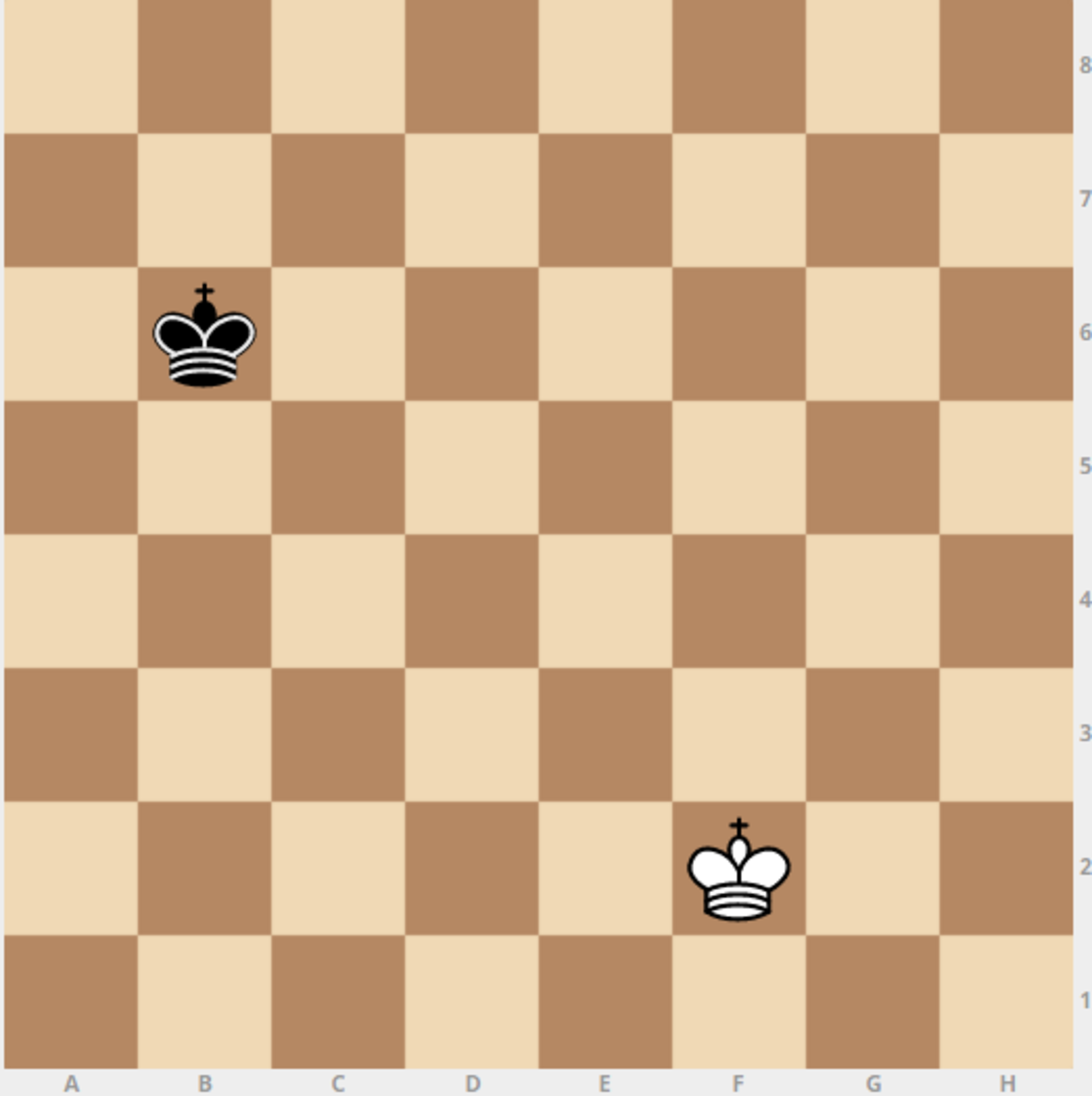King and King

Dimitri places a Black King and a White King on an empty chessboard. If the probability that Dimitri places both Kings on the chessboard such that neither of the Kings is in check (that is, the White King is not adjacent to the Black King), can be expressed as , in which and are coprime positive integers, find .
As an explicit example, if a King is on , the , , , , , , and squares are under attack and these are the adjacent squares to . Note that if the other King is placed on any of the squares, the Kings are attacking each other, so both are in check, which is impossible.
The White King and the Black King cannot be placed in the same square.
This is the sixth problem of the set Look after the King!
The answer is 91.
This section requires Javascript.
You are seeing this because something didn't load right. We suggest you, (a) try
refreshing the page, (b) enabling javascript if it is disabled on your browser and,
finally, (c)
loading the
non-javascript version of this page
. We're sorry about the hassle.
This problems boils down to case consideration. WLOG we consider placing the white king first. There are three cases :
The sum of these is:
4 0 3 2 2 4 0 + 4 0 3 2 1 3 9 2 + 4 0 3 2 1 9 8 0 = 4 0 3 2 3 6 1 2 = 4 8 4 3
n − m = 4 8 − 4 3 = 5